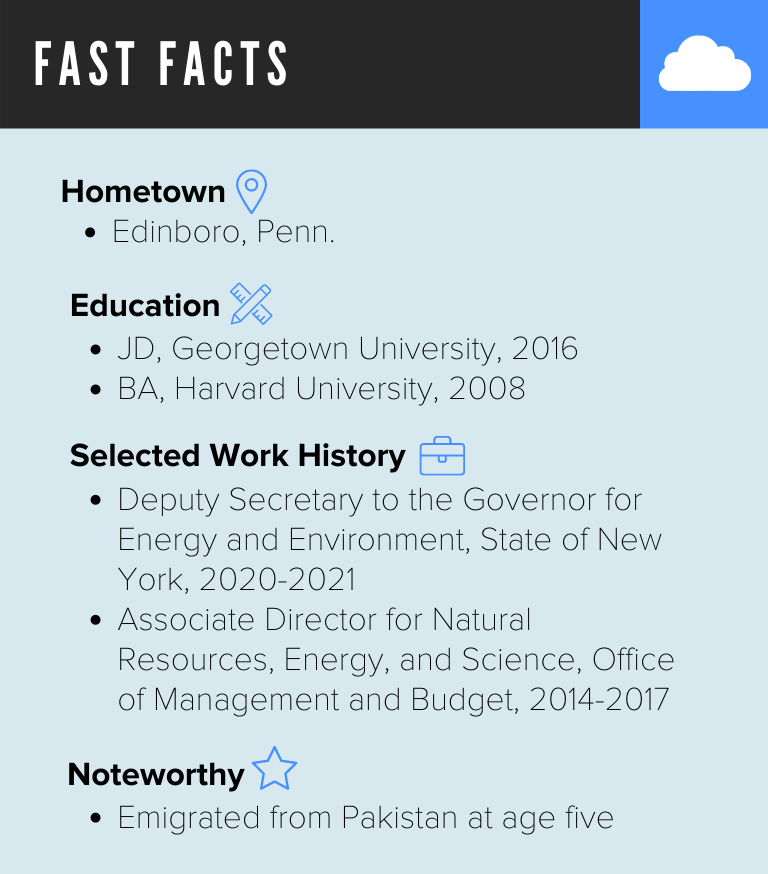Deputy National Climate Advisor
Fast Facts

Environmental Justice Wonk

LEARN MORE
Vignette, a service through National Journal Research, is an essential tool for government affairs teams that need to understand the people behind the policies.
Click here to request a demo of the Vignette database, or email njvignette@nationaljournal.com to speak to someone about your access.
Ali Zaidi is one of the many prominent Obama-era figures who have boomeranged back to the Biden White House after spending the Trump years in the private sector.
Zaidi, a Pakistani immigrant who moved to the U.S. as a child and grew up in Pennsylvania, served all over the Obama administration through the entirety of its eight years, mostly in areas dealing with energy and the environment. He began at the Council on Environmental Quality before becoming deputy director of energy policy at the Domestic Policy Council and associate director for energy and natural resources at the Office of Management and Budget. There, he led the creation and implementation of the Climate Action Plan and helped negotiate the Paris Climate Agreement.
After President Trump’s election, Zaidi served as a regulatory attorney in private practice and as a professor at Stanford University, and he cofounded Lawyers for a Sustainable Economy, an initiative that connects entrepreneurs and nonprofits dedicated to sustainability with pro-bono legal services. Last year, he became a senior adviser to New York Gov. Andrew Cuomo for energy and environment.
At the White House, Zaidi’s charge is to coordinate with administration officials to carry out a “whole-of-government” approach to the climate crisis in order to drive job creation and environmental justice.
Approach and Motivations
Excerpted from Ali‘s Vignette profile
Applies an economic lens to make the case for climate-conscious policy; recognized agility in navigating and fostering collaboration between federal agencies
- Published extensively in academic journals on the economic and fiscal implications of climate change for government, taxpayers, and business; expects the private sector to play a prominent role in ushering in environmental change, believing that companies that prioritize reducing carbon emissions will “come out ahead”
- Having spent the majority of his time in government in a White House office dedicated to budget issues, characterized OMB’s approach to climate as thoroughly evaluating the “social cost of carbon”; incorporated that calculation into office decisions, including when examining federal procurement contracts
- At OMB, successfully coordinated with multiple federal agencies including the Energy Department, the Army Corps of Engineers’ civil works, the National Science Foundation, and the Tennessee Valley Authority; brings this background to his new role, where he will coordinate climate policy between the White House and federal agencies
Not a Vignette subscriber? You can purchase a digital book with in-depth profiles on everyone featured in this special report.
To learn more about Vignette, or see the platform in action, request a demo here.

